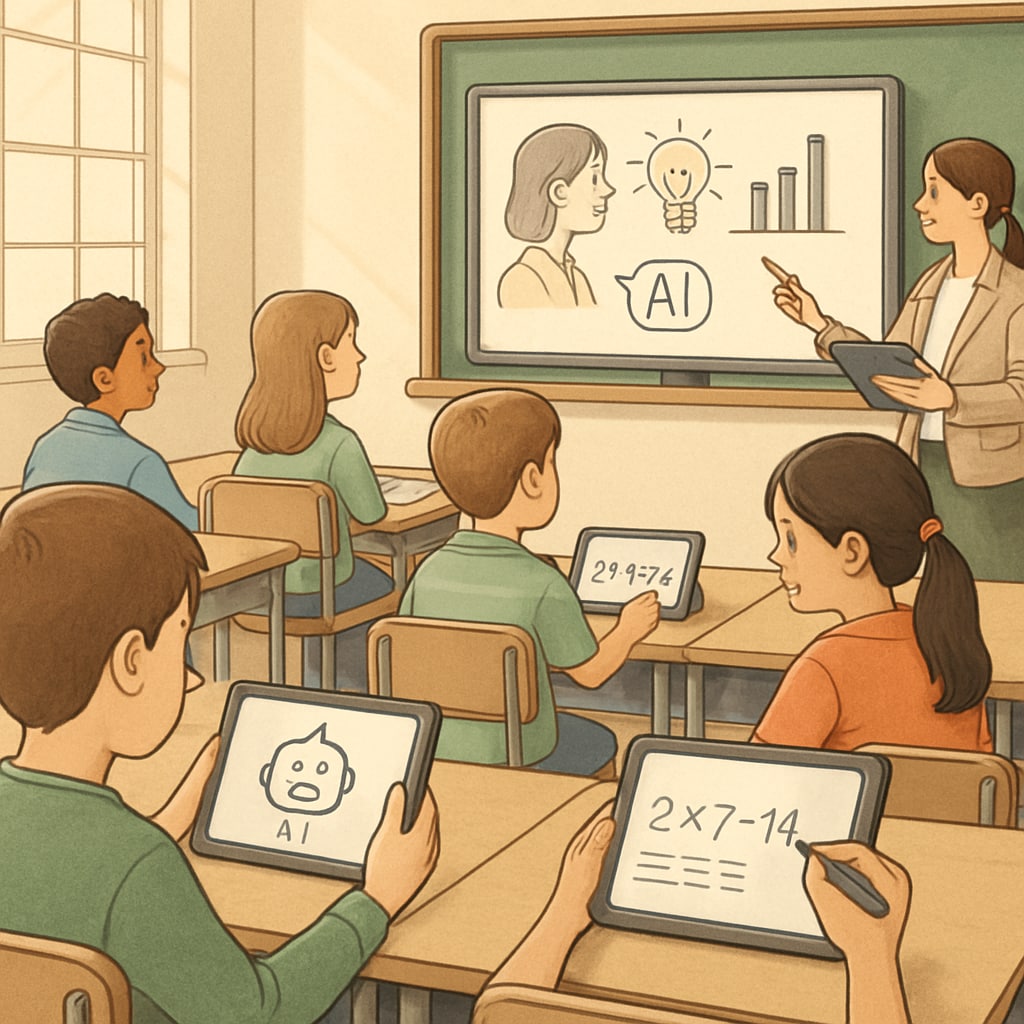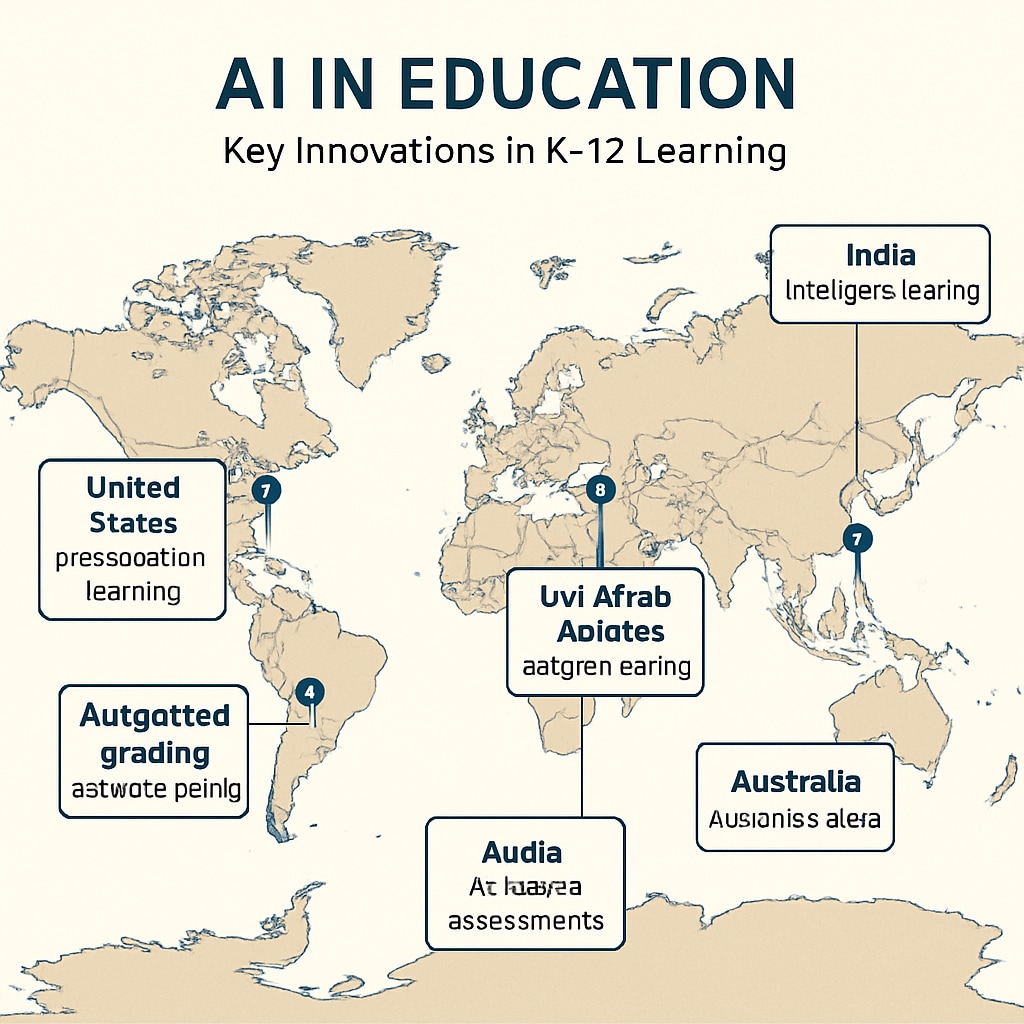Artificial intelligence (AI) is rapidly transforming global education, with K12 learning at the forefront of this evolution. By integrating AI-driven tools such as personalized learning platforms and intelligent assessment systems, education is becoming more adaptive, efficient, and accessible. The rise of AI in education signals a significant shift in how students engage with learning materials and how educators approach teaching methodologies.
The Rise of AI in K12 Education
AI has become a game-changer in K12 education due to its ability to tailor learning experiences to individual students. For example, AI-powered software can analyze a student’s progress, identify areas requiring improvement, and adjust content accordingly. This level of personalization ensures that students receive the support they need to thrive academically.
Moreover, intelligent tutoring systems (ITS) and virtual teaching assistants have started to play a prominent role. These systems offer real-time feedback, provide additional resources, and even simulate one-on-one tutoring sessions. As a result, students can learn at their own pace while receiving targeted guidance.

Global Impact and Growth of AI in Education
The global adoption of AI in education is growing exponentially. According to recent reports, the AI education market is projected to reach billions of dollars in value within the next decade. Governments and private organizations are investing heavily in AI technologies to bridge educational gaps and enhance learning outcomes. For instance, countries like Finland and Singapore are integrating AI into their national curriculums to prepare students for the digital future.
The impact of AI goes beyond the classroom. AI-driven platforms are enabling access to quality education in underserved regions. With tools like language translation algorithms and adaptive learning programs, students from diverse linguistic and socio-economic backgrounds can benefit equally from advanced educational resources.

Challenges and Ethical Considerations
While AI offers immense benefits, it also brings challenges that need careful consideration. Privacy concerns arise as AI systems collect vast amounts of student data to provide personalized learning. Ensuring the ethical use of this data and maintaining transparency in AI algorithms are critical to building trust among educators, students, and parents.
Additionally, the potential for AI to replace human teachers has sparked debates. Experts argue that AI should be seen as a tool to augment teaching rather than a replacement. Human interaction remains vital for fostering emotional intelligence, creativity, and social skills—areas where machines still fall short.
Future Trends in AI-Driven Education
Looking ahead, AI is expected to continue reshaping the educational landscape. Key trends include:
- Gamified Learning: AI integration in educational games to make learning more engaging and interactive.
- Predictive Analytics: Using AI to forecast student performance and offer early interventions.
- Immersive Technologies: Combining AI with augmented reality (AR) and virtual reality (VR) for enhanced experiential learning.
- Global Collaboration: AI-powered platforms enabling cross-cultural educational exchange.
As AI continues to innovate, educators must embrace these technologies while addressing the associated challenges to ensure a balanced and ethical approach to teaching and learning.
Readability guidance: Short paragraphs and clear transitions improve comprehension. Lists summarize key points effectively, while avoiding overly technical jargon ensures accessibility to a broader audience.


